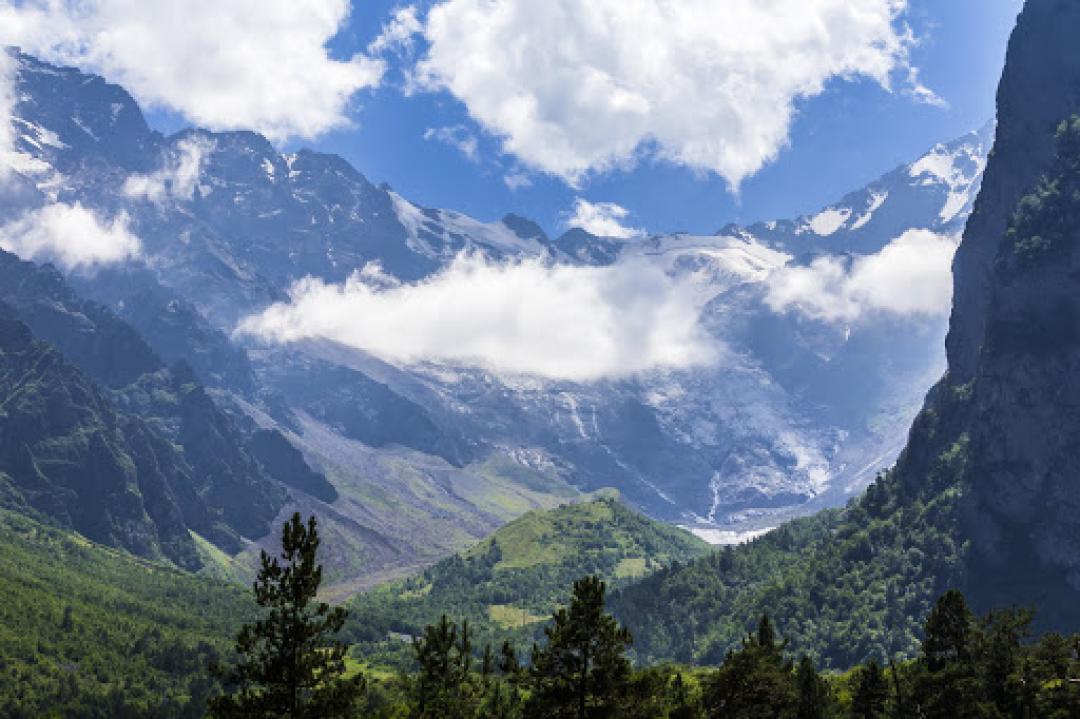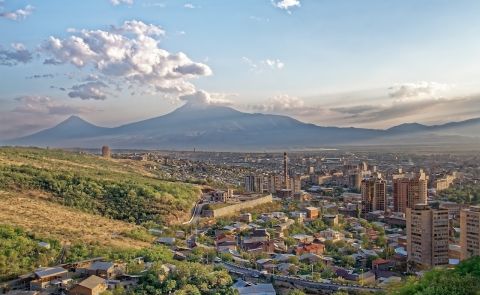
Recent social research data for North Caucasus

Chechnya and Dagestan at the end of the ranking of separate waste collection
Chechnya, Dagestan, and the Astrakhan region took the last places among the Russian regions in the ranking for separate waste collection. The data was provided in a study by the organisation "Russian Ecological Operator," which monitors the efficiency and legality of municipal waste management.
According to the research results, 32% of Russians sort waste and throw it into containers for mixed and separately collected waste - this data was obtained during a telephone survey of respondents. At the same time, 93% of respondents are to some extent aware of waste sorting, of which 55% have only a general idea about it.
In Chechnya, 76% of the respondents know about separate waste collection, in Dagestan - 77%, and in the Astrakhan region - 83%.
In November, Federal Service for Supervision of Use of Natural Resources (Rosprodnadzor) experts checked information on the accumulation of waste in water bodies important for Dagestan and found 11 thousand cubic meters of floating garbage in the Irganai reservoir, from where the residents of neighbouring villages are supplied with water, and 15 thousand cubic meters in the Andi Koisu River. During the inspection, water samples were taken. An excess of the permissible concentration of pollutants was discovered.
At the end of April, the Southern Directorate of Rosprirodnadzor reported that the existing landfill in the Belorechensky district of the Krasnodar Territory had exhausted its design capacity - the department is now obliged to seek its closure through the courts. Waste is brought here from three districts of the Kuban, as well as from Sochi and Goryachiy Klyuch.
On April 10, an authorised rally was held in Belorechensk demanding to solve the environmental problem of the municipality. A petition collected about six thousand signatures demanding the resolution of the garbage issue.
South Russia regions at the bottom of car affordability rating
The North Caucasian federal republics took the last places in the rating of affordability of buying a relatively inexpensive car. The Chechen Republic closes the table in the ranking (85th place), where only three and a half percent of families can afford to buy a new car worth 8.3 thousand euros.
The situation is no better in other republics, where the percentage of families who can afford to buy an inexpensive car and maintain it does not exceed seven percent: Ingushetia (3.7% - 84th place), Dagestan (4.6% - 83rd place), Kabardino -Balkaria (5.8% - 58th place) and North Ossetia (7% - 78th place).
The best indicators among the regions of the Southern and North Caucasian Federal Districts are in the Astrakhan region (13.7% - 40th place), Rostov region (12.1% - 47th place), Volgograd region (11.9% - 49th place), Krasnodar Territory (11.1% - 52nd place), Stavropol Territory (9.7% - 62nd place) and Adygea (8.7% - 69th place).
In first place in the ranking is the Yamalo-Nenets Autonomous Okrug, where 59.4% of residents can afford an inexpensive car.
Previously, all regions of the North Caucasus Federal District, as well as the Krasnodar Territory, Kalmykia and Adygea were at the end of the annual ranking in terms of mortgage availability. In the North Caucasus, only 17% of families can afford to take out a loan to buy real estate.
The lowest pensions in Russia are in the North Caucasus. This follows from the published data on the average pension by region as of October 1, 2021.
In 2020, the highest unemployment rate among Russian regions was recorded in Ingushetia - 29.8%, Chechnya (18.5%), Tuva (18%), Dagestan (15.7%) and North Ossetia (15.4%).
Ossetia and Chechnya became outsiders in public procurement transparency rating
North Ossetia and Chechnya took the penultimate and last places in the "National Procurement Transparency Rating." Both republics were assigned a "low" rating of transparency of public procurement procedures out of five possible, according to the project’s website. Last year, North Ossetia ranked 78th and Chechnya ranked last.
To assess the transparency of public procurement carried out within the framework of Federal Law No. 44-FZ, 43 criteria are applied, including the average number of suppliers admitted to trading, the average number of bids submitted, the share of completed and failed purchases, the share of trade procedures with a single participant, reduction estimates the starting price of the contract, and others.
Also, unsatisfactory results, according to the compilers of the rating, were shown by Kabardino-Balkaria, which took 82nd place. The Stavropol Territory was in 74th place, Kalmykia - in 64th, Rostov Oblast - in 51st.
The best results in the South of Russia are in Ingushetia, Dagestan, and Adygea (37th, 38th, 39th places). On the 41st place is the Krasnodar Territory, on the 45th - Karachay-Cherkessia.
Moscow is in the first place among the regions, the Khanty-Mansiysk Autonomous Okrug is in the second place, and the Tambov Region is in the third place.
The government of North Ossetia decided to purchase its own luxury car - a black six-seater Mercedes V25 minivan. For these purposes, the purchaser - the motor depot of the head and government of the republic - is ready to spend 8 million 960 thousand rubles.
In August, a tender was announced in Chechnya for the supply of designer greeting cards for 1,000 rubles apiece, leather folders for 7,000 rubles and pens with engraved symbols of Chechnya for 3,000 Russian rubles.
Crime solve rate halved in Chechnya
In Chechnya, since the beginning of 2021, the solved crime rate has more than halved (by 58.5%). This is the worst indicator in the country, according to the report of the Ministry of Internal Affairs of Russia. A decrease in solve rate was noted in all six national republics of the North Caucasus, the second-worst result was in Dagestan, where the solve rate fell by 25.3%. In Adygea, according to the Ministry of Internal Affairs, for 11 months of this year, 15.9% fewer crimes were solved than in the same period a year earlier.
For 11 months of this year, 2,889 crimes were officially registered in Chechnya, which is 1% more than last year. Among the southern regions, the maximum increase in crime was noted in Ingushetia (by 12%), in Dagestan (by 6%) and Krasnodar Territory (by 5%). The decrease in crime of the Ministry of Internal Affairs of Russia was recorded in the Rostov region (by 5%) and Karachay-Cherkessia (by 4.9%).
Chechnya also became the leader in the growth in the number of crimes committed using the Internet (an increase of 194%). A sharp increase in such crimes was noted in Dagestan (an increase of almost 60%), Adygea (38%), North Ossetia (33%) and Ingushetia (26%). Most of these crimes involve social media and instant messaging.
The Krasnodar Territory, Ingushetia, Dagestan, and Chechnya are the leaders in the growth rate of grave and especially grave crimes in southern Russia and the North Caucasus. In Chechnya, dozens of relatives of critics of the head of the republic, Ramzan Kadyrov, have been kidnapped in recent weeks. Six people reported the disappearance of their family members - human rights activists Abubakar Yangulbaev, Mansur Sadulaev, and Aslan Artsuev, as well as opposition Chechen bloggers Tumso Abdurakhmanov, Khasan Khalitov, and Minkail Malizayev. Kadyrov indirectly admitted the kidnapping of the relatives of his critics but denied any involvement in this. According to the head of Chechnya, those who have been "offended" by human rights defenders and bloggers may be behind the disappearances. “No one has cancelled our blood feud,” Kadyrov said.
The most common crimes in January-November 2021 in Russia were theft (26%), cases of fraud (16%), driving after suspension (3%), robberies (1.8%), murder, rape, and deliberate infliction of serious harm to health (1.4%).
See Also


Nordic-Baltic Delegation Meets Armenian Leaders to Discuss Regional Cooperation and Peace

Azerbaijan Strengthens Energy Partnerships with Multiple Countries

BP Strengthens Presence in Azerbaijan’s Offshore Energy Sector

Netanyahu’s Letter to Aliyev: Mutual Trust, Solidarity Following Hamas Attacks, Facilitating Dialogue Between Israel and Türkiye

